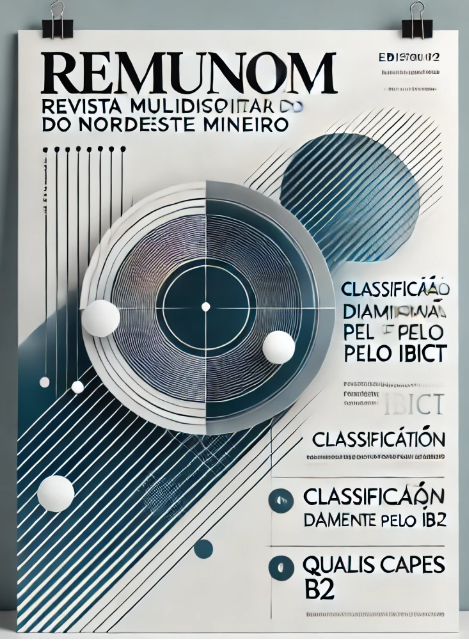AUTISM IN THE BRAZILIAN SUPREME COURT
RIGHTS AND JUSTICE IN CRIMINAL CASES
DOI:
https://doi.org/10.61164/rmnm.v11i1.4176Keywords:
autism, autistic, criminal, justice, BrazilAbstract
This study examines the monocratic decisions issued by the Brazilian Federal Supreme Court (STF) in criminal matters involving autism spectrum disorder (ASD) between the years 1988 and 2024. The research was based on a search of the STF's jurisprudence portal using the keywords "autistic" and "criminal," resulting in the identification of 75 decisions. These decisions were classified into distinct thematic categories and subjected to statistical and qualitative analysis. Of the total, 60 decisions (80%) were denied, while only 15 (20%) were fully or partially granted. It was observed that the majority of cases (39) pertained to habeas corpus proceedings, followed by precautionary measures, criminal actions, and extraordinary appeals. The granted requests primarily involved petitions for house arrest for women or caregivers of children with ASD, based on the Bangkok Rules and the principle of the best interests of the child. Conversely, the denials were mostly justified by the absence of flagrant illegality, procedural default, or a focus on maintaining public order. From 2020 onward, there was a significant increase in the number of related decisions. The study concludes that the STF maintains a cautious stance, prioritizing strict legality and public order, and only exceptionally grants relief in cases with humanitarian appeal.
References
BRASIL. Constituição (1988). Constituição da República Federativa do Brasil. Brasília, DF: Senado Federal, 1988.
BRASIL. Lei nº 12.764, de 27 de dezembro de 2012. Institui a Política Nacional de Proteção dos Direitos da Pessoa com Transtorno do Espectro Autista; e altera o § 3o do art. 98 da Lei n. 8.112, de 11 de dezembro de 1990. Diário Oficial da União: seção 1, Brasília, DF, ano 149, 2012.
BRASIL. Lei nº 13.146, de 6 de julho de 2015. Institui a Lei Brasileira de Inclusão da Pessoa com Deficiência (Estatuto da Pessoa com Deficiência). Brasília, DF: Senado Federal, 2015.
MAENNER, M. J., WARREN, Z., WILLIAMS, A. R.. Prevalence and characteristics of autism spectrum disorder among children aged 8 years — Autism and Developmental Disabilities Monitoring Network, 11 sites, United States, 2020. MMWR Surveillance Summaries, 72(No. SS-2), 1–14. 2023.
ONU. Convenção sobre os Direitos das Pessoas com Deficiência. Nova York: Organização das Nações Unidas, 2006.
ONU. Regras de Bangkok: Regras das Nações Unidas para o Tratamento de Mulheres Presas e Medidas Não Privativas de Liberdade para Mulheres Infratoras. Nova York: Organização das Nações Unidas, 2010.
RAMOS, P. H. L.; STAKOVIAK JUNIOR, P. B. M.; DA SILVA, W. C. O Modelo De Guarda Nidal E Sua Importância E Aplicabilidade Para Os Casos Que Envolvam Crianças E Adolescentes Com O Transtorno Do Espectro Autista. ARACÊ, v. 7, n. 5, p. 25223–25249, 2025.
REALE, M. Lições preliminares de direito. Saraiva, 2001.
SILVA, W.; RESPLANDES, P. K. T.; DE SOUZA SANTOS, Q. O. M. Autismo e direito no Brasil: análise de decisões monocráticas dos tribunais regionais federais sobre BPC para pessoas com TEA (2007-2022). Direito em Revista, v. 9, n. 1, p. 24-36, 2024.
SILVA, Wainesten; SANTOS, Queila Ozana Machado de Souza; LIMA, Yan Fábio Studart; ALMEIDA, Davila Karine de; BERALDO, Keile Aparecida; ROCHA, Ana Laura Santos; MIRANDA, José Fernando Bezerra; RODRIGUES, Waldecy. Autismo, direitos e justiça: evidências dos acórdãos dos tribunais estaduais brasileiros (2008-2022). Direito em Revista, v. 10, n. 1, p. 46–56, 6 nov. 2025. ISSN 2178-0390.
Downloads
Published
How to Cite
Issue
Section
License
Copyright (c) 2025 Revista Multidisciplinar do Nordeste Mineiro

This work is licensed under a Creative Commons Attribution-NonCommercial-ShareAlike 4.0 International License.




